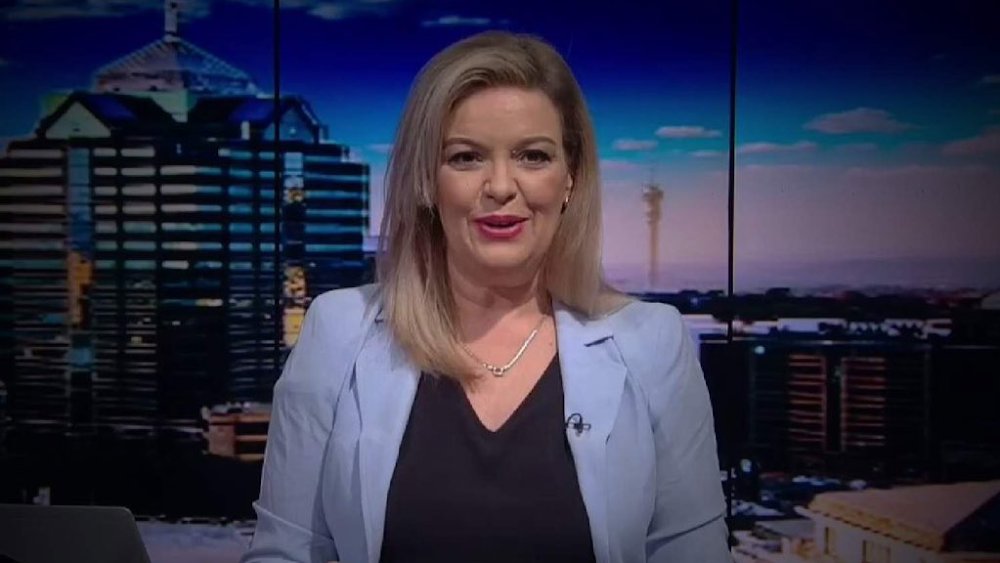News
Juliet Newell Is Back on SABC but South Africans Still Want the Truth

When Juliet Newell quietly returned to the SABC news line-up in early October, South Africans were stunned. The presenter had been off air since her controversial interview with Dr Mamphela Ramphele, where a charged exchange about Gaza and the Holocaust sent shock waves through the country. Many assumed the SABC’s promised internal review would unfold publicly before any return could happen. Instead, Newell simply reappeared on screen during coverage of the Local Government Indaba, and the public has been left to piece the story together.
The Interview That Set Off a Firestorm
To understand the reaction, one must revisit the moment that spiralled into a national talking point. During a conversation about Gaza, Newell questioned Dr Ramphele on whether comparing the humanitarian crisis to the Holocaust was provocative. What followed was a tense exchange about language, history, and the boundaries of comparison.
Dr Ramphele stood firm in her view. Newell pushed back. The discussion struck a nerve with viewers across political and ideological lines. Some saw the presenter’s tone as dismissive of Palestinian suffering. Others argued that Dr Ramphele’s terminology was inflammatory. Within hours, solidarity organisations, political voices and community groups were weighing in.
The Palestine Solidarity Alliance and Palestine Solidarity Campaign condemned the interview. The ANC Study Group in Parliament issued a strongly worded statement calling the moment unacceptable, insisting on accountability, and confirming that the SABC Group CEO had assured them a formal internal process was underway. At the same time, Zionist organisations expressed outrage at Dr Ramphele’s characterisation of Gaza, calling her description extraordinary and provocative. The dispute became not only about what was said, but also about who gets to ask which questions in a public broadcaster’s newsroom.
SABC’s Swift Action and the Promise of an Internal Review
Faced with intense pressure from all sides, the SABC confirmed that Newell had been removed from the schedule. It stated that the matter would be handled through its official internal processes, guided by the Broadcasting Act and its own editorial policies, which emphasise credibility, plurality, and public trust.
At the time, this statement offered reassurance. The public expected clarity once the review concluded. After all, the broadcaster had committed to appropriately addressing the incident. Every political and civil society organisation involved agreed on one thing. Transparency mattered.
Zionist Organisations Push Back
However, the response did not end there. Zionist groups argued that the broadcaster’s decision was not simply disciplinary. They framed it as an attack on editorial independence. They called on the SABC to reverse the suspension and demanded a transparent and independent review. They also requested a public apology and insisted that newsroom standards must be determined by editors rather than external pressure. They urged SANEF to defend journalists who interrogate difficult claims.
The tension revealed deeper concerns about who influences South Africa’s public broadcaster and how it responds to political heat.
Newell Returns but Without the Answers Viewers Expected
Then came 3 October. Without any public announcement, Newell’s face appeared on the late-night screen. She was reporting live, interviewing governance expert Professor Angelo Dube at the Local Government Indaba. No explanation accompanied her return. No update from the SABC. No confirmation that the promised process had been concluded. No findings released.
Social media users noticed immediately. Some celebrated her reinstatement. Others accused the broadcaster of ducking accountability. Many simply asked the question that now lingers in South African households.
What exactly happened behind closed doors?
The Unanswered Questions
South Africans are left with three key questions.
Was the internal review actually completed?
Why has the public not been given the findings or outcomes, despite the SABC’s earlier commitments?
Does Newell’s return suggest that the matter is closed, or was the issue quietly set aside?
With political groups, solidarity organisations and media freedom advocates all agreeing on the need for transparency, the SABC’s silence has become the story. As a public broadcaster funded by South Africans, it carries a responsibility not only to act but also to explain.
Until it does, Juliet Newell’s return remains a moment clouded by uncertainty. The controversy may have faded from the nightly headlines, but the questions remain on the table, waiting for answers.
Also read: The Great KZN Construction Scam: How ‘Bought’ Certificates Are Failing Our Roads
Follow Joburg ETC on Facebook, Twitter, TikT
For more News in Johannesburg, visit joburgetc.com
Source: IOL
Featured Image: CrispNG















